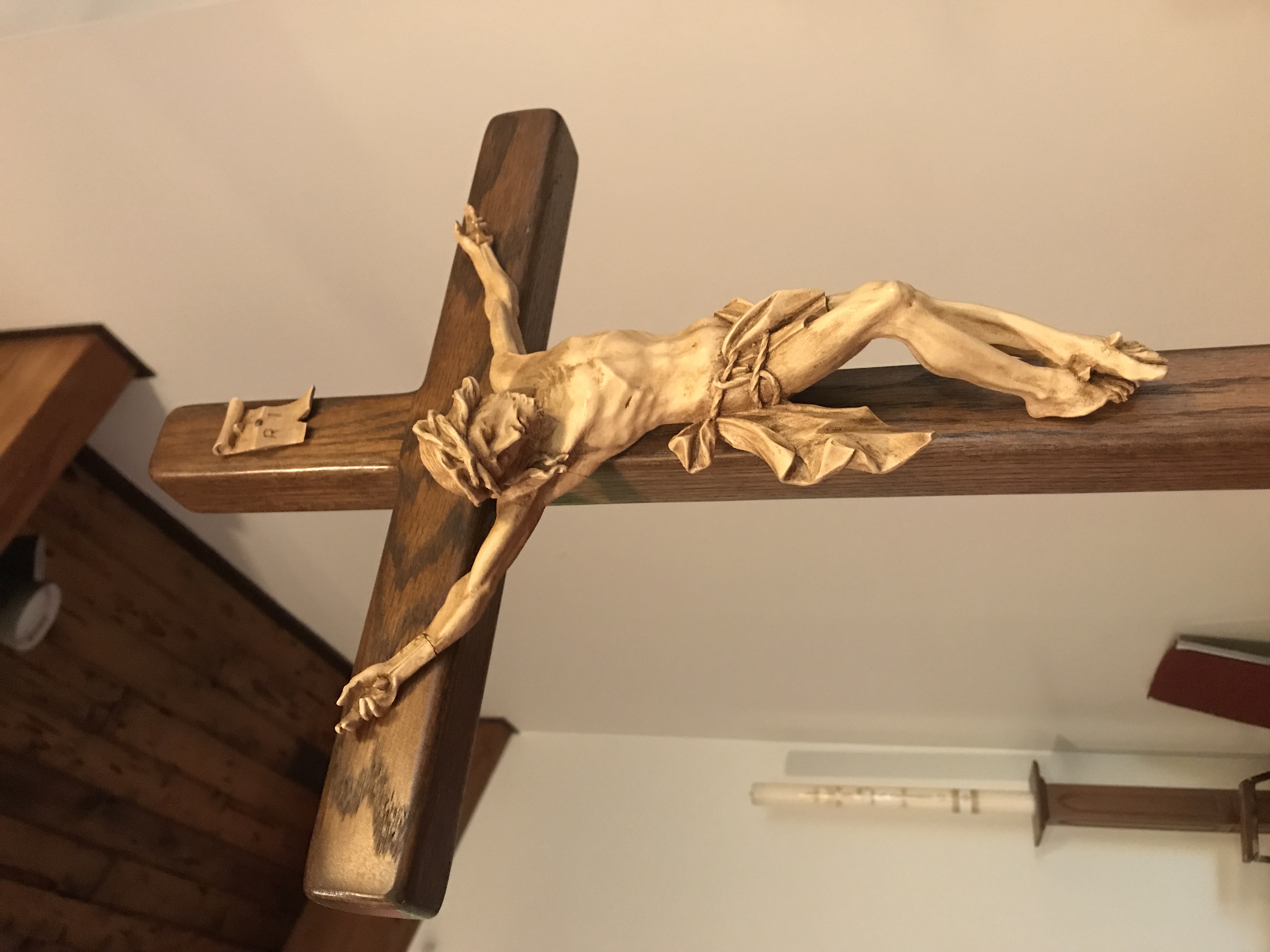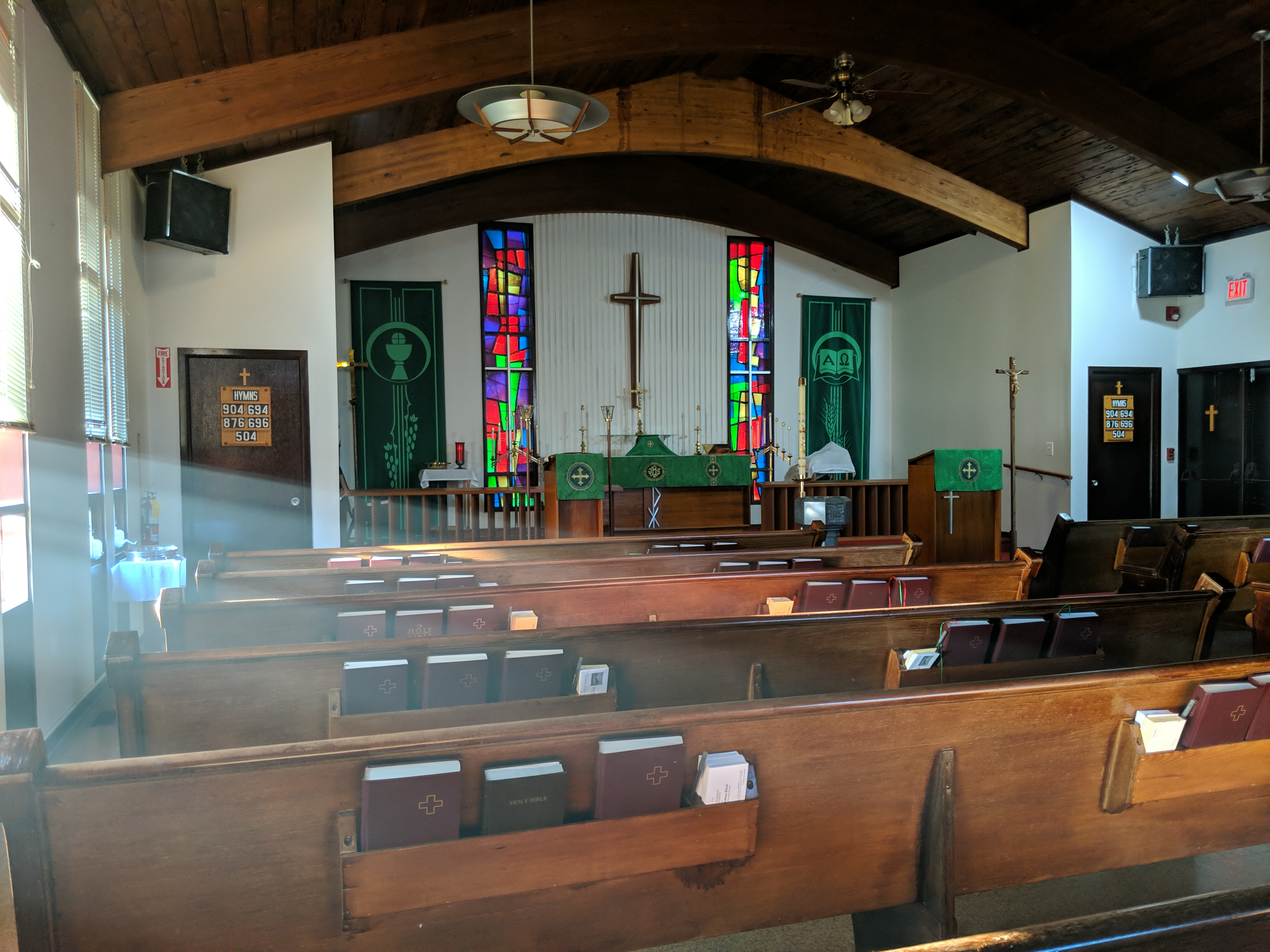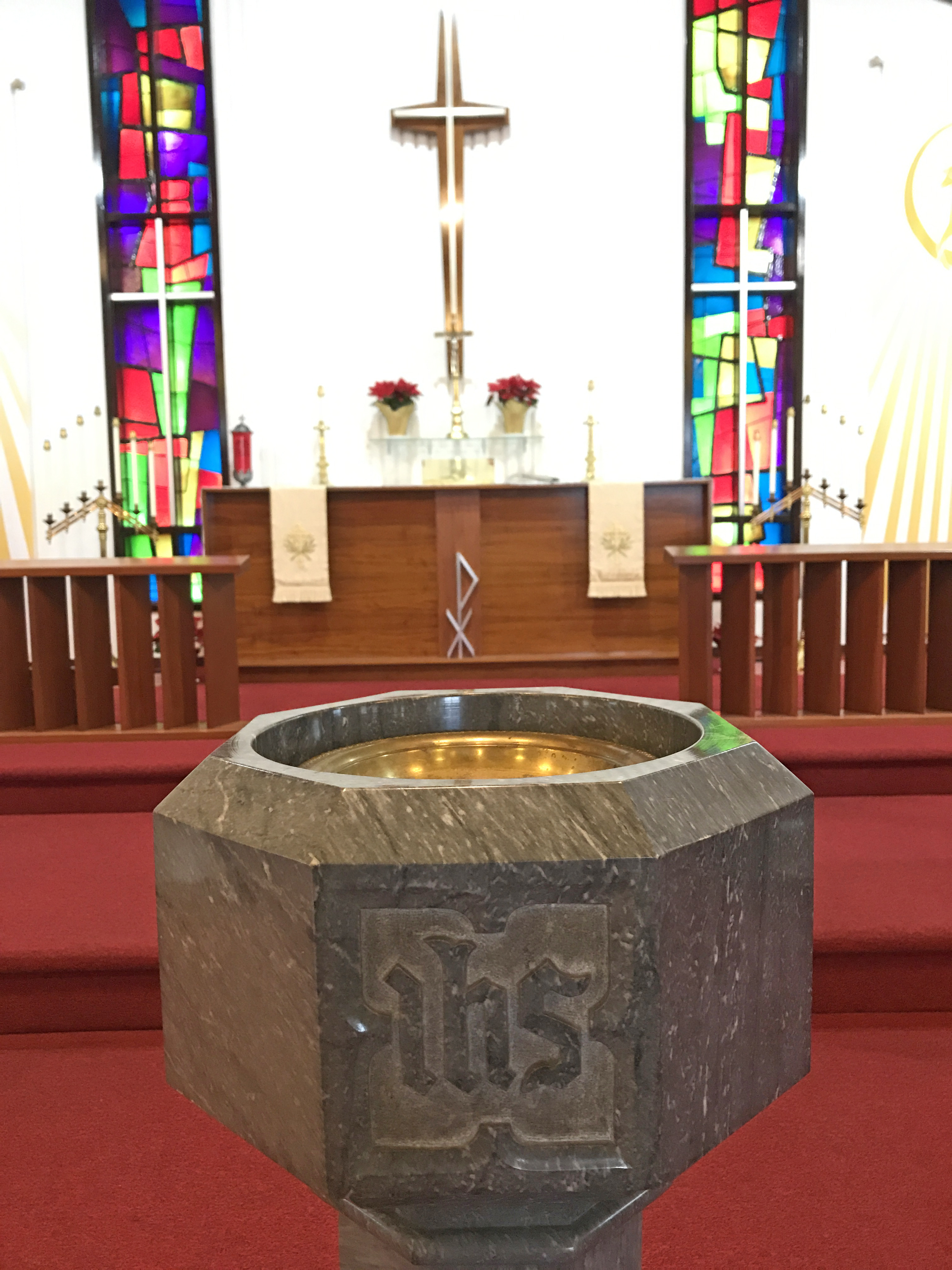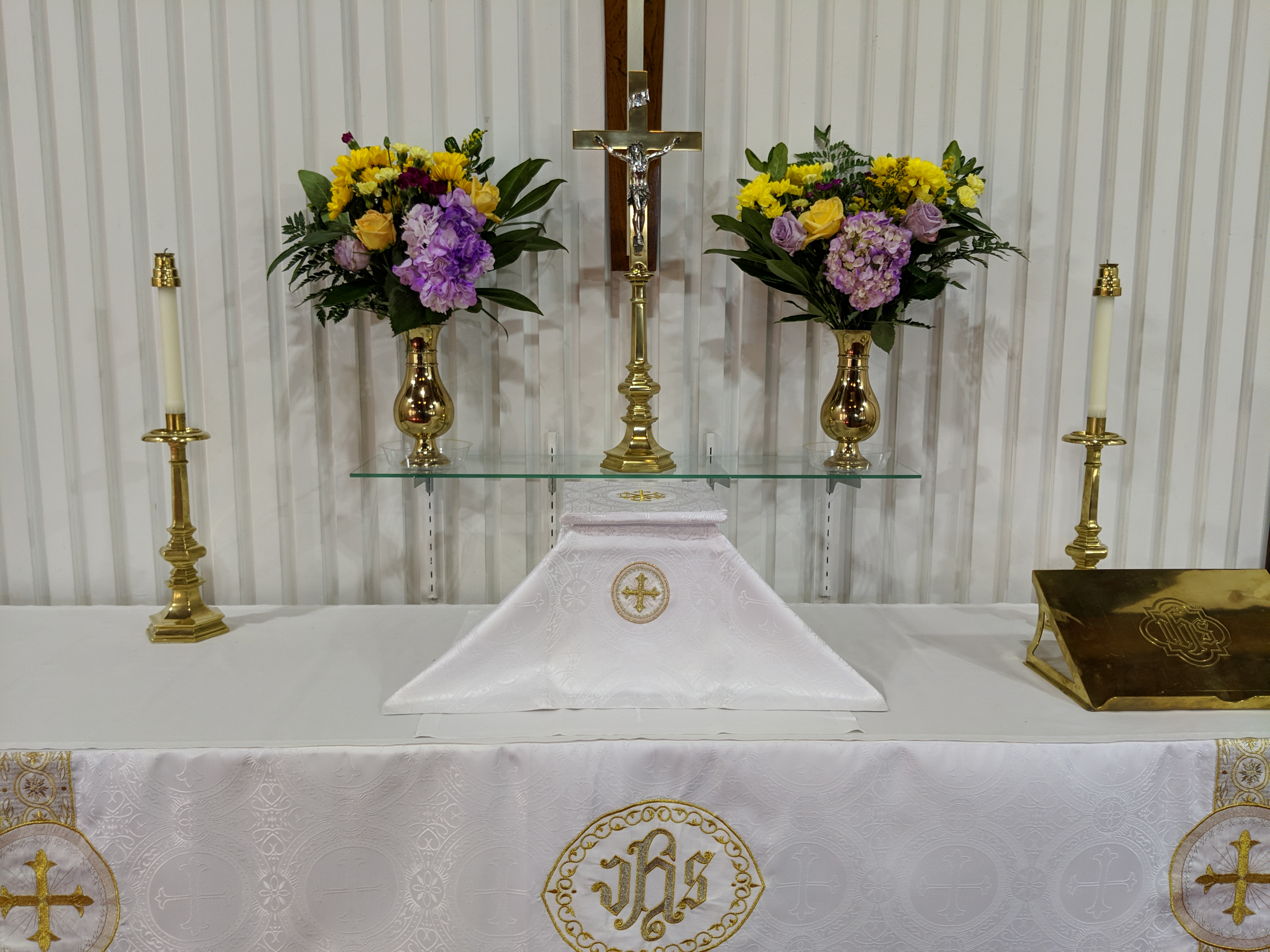The Third Sunday after Trinity – Sunday 16 June A✠D 2024
✠ Psalmody: Psalm 25:16, 18;25:1-2, 5, 15, 20;55:22, 16, 18a;18:1-2a
✠ Lection: Micah 7:18-20;1 Peter 5:6-11;St. Luke 15:1-10
In the Name of the Father and of the ✠ Son and of the Holy Spirit. Amen.
The historic lectionary gives us the first two of three parables in Luke chapter 15, with the last being familiar even to unbelievers in our day. Many know and use the term prodigal son, but the real treasure in the story is the faithful Father. O, that we all had earthly fathers like the one in Luke 15! Not to pronounce blanket judgment against all fathers, for many of us have been or have had outstanding heads of the family. Yet, regardless of how good we were or he was, every earthly father’s child has seen that dad, too, bears the deep curse of sin, and has certainly been in numerous situations of needing to plead for forgiveness from his children, and from their mother alike. Such are the lives of sinners living out these days together, especially in close proximity. It is good to confess our sins to one another, to seek forgiveness, and to freely give it when it is sought from us.
The father in Luke 15 isn’t merely given as a good example of how to be a faithful father, even to wayward children. Start first with what is underlying that parable and the two immediately preceding it to discover not only that all people stand condemned in our lack of godly perfection, but that there are also characteristics of God upon which we are to act in faith, all to our comfort as His beloved, often wayward children.
Comparing our lives with what the Lord reveals in the Scriptures is not only right and salutary, but also necessary for us to be enlightened by His truth to all the ways of the world, seen and unseen. The Lord Jesus prompted those in His day to compare themselves with the truths of God, to examine the ways of their lives in light of that to which God calls all people: “You shall be holy, for I the LORD your God am holy.” (Lev. 19:2).
Prior to our chapter of parables, Jesus asked, “Is it lawful to heal on the Sabbath?” But [the lawyers and pharisees] kept silent. And He took [a man before him who had dropsy] and healed him, and let him go. Then He answered them, saying, “Which of you, having a donkey or an ox that has fallen into a pit, will not immediately pull him out on the Sabbath day?” And they could not answer Him regarding these things. This comparison is a no-brainer, so obvious that, by simply asking, it revealed the foolishness of their over-zealous man-made righteousness, and their refusal to take Jesus seriously.
Thus, we return to Luke 15 and hear similar, but not-so-obvious-answer questions: “What man of you, having a hundred sheep, if he loses one of them, does not leave the ninety-nine in the wilderness, and go after the one which is lost until he finds it?” and “what woman, having ten silver coins, if she loses one coin, does not light a lamp, sweep the house, and search carefully until she finds it?” Practically speaking, this man’s and woman’s actions aren’t so obvious in our world as what one would do if his son truly fell into a hole. Who would leave 99% of a herd exposed to the dangers of open country, just to spend who-knows-how-much time looking for the one dumb sheep that decided to wander off on its own? We’d be more likely to cut our losses and count the one as a meal for the local wolfpack. So, what good shepherd would seemingly endanger so many for the sake of one, as Jesus has implied? Or what woman wouldn’t just wait for the much more revealing daylight before searching floor to ceiling, keeping the whole house awake in her frantic worry in search of also one out of many? It seems more sensical to our earthly ears to be patient until the morning, but just as how Jesus concluded the previous chapter, “he who has ears to hear, let him hear.”
Hear that the intensity, dedication, and self-sacrificial love that the Lord has for each and every sinner is far above the level that we are willing to have for our neighbor, be it someone on the street that we know only by first name, or one nearer to us that God has given to us as our own flesh and blood, or blessed us with life together within the same home. We’re not willing to give up anything at any time for each other’s’ sake. Yet the Lord’s love has no such limit, even regarding the 99, for Who has the power to snatch even one of those out of His hand? Neither death nor life, nor angels nor principalities nor powers, nor things present nor things to come, nor height nor depth, nor any other created thing, shall be able to separate us from the love of God which is in Christ Jesus our Lord. It was He Who gave up heaven, even if it were for only one of us, the sheep prone to wander, the sheep who have gone astray.
Where we have failed one another in love and service, our dear Lord has not, and has rather perfectly succeeded and with great abundance pours Himself into our regenerate hearts. See the great love with which He loves you, having left the heavenly abode where the Father dwells, carrying with Him His own rightful share of Heaven, being God in the flesh. And how has He come to this land set against God and spent His wealth? He used it all up, dwelling among us sinners, going down to the point of becoming our sin for us, even though He knew no sin. He descended down to us, into the place where hearts are filthier than the accumulating piles lining the ground of a pig pen. All this He did, not because we’re so great and worthy a sheep, but He good and merciful Savior. In remembering you, He never forgot the unconditional love of the Father from Whom He was begotten. He never forgot about the Father’s grace and desire to have all His beloved at His eternal home. He calls you never to forget the Father’s desire to forgive, to forgive again, and to keep on forgiving you. If you wonder that since you were forgiven all your sins in your baptism, then why is it good, why is it absolutely vital and necessary that you continue to come receive it regularly? It isn’t that your baptism has somehow become ineffective or worthless. No, cherish your baptism everyday, for by it you are in Christ. The reason you continue to come to receive more and more Jesus is that though you are now a baptized saint of God, standing before Him justified and robed in the righteousness of Christ, you still bear the sinful flesh and the war against it is intense and it is daily. The weapons that you need to battle the sin that still dwells in you are what you receive here, at your Father’s house; the place that you know you can return because He has made you His child. This is why Church is important. This is why His Word is a lamp unto your feet and a light unto your path. This is why His forgiveness never grows cheap upon the tongue of you who realize your sin and in receiving the One, the only One Who is able to forgive your sin. O the blessings found in every dose of your Father’s grace into your life, dear little children! Unlike the limited treasures that even the wealthiest earthly father can give his son in an inheritance, the infinite well of grace and forgiveness that the Lord has for every one of you cannot be depleted. As much as you ever see that you need it, and daily you do, you will discover that He is waiting for you, always searching that He may have you, with loving anticipation, so that He can pour it out on you to the celebration of all of heaven and the host of angels therein. Worldly wealth or depletion of it will never affect value of God’s grace. No world leader will ever be able to cheapen your Father’s worth to those who see that they need Him, who desire to have Him, and who know where to come receive Him, all because they know, you know, the Father’s heart toward repentant sinners in need of what only He has and gladly searches to give.
In ✠ Jesus’ Name. Amen.















Comments are closed, but trackbacks and pingbacks are open.